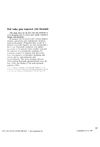1 citations,
January 2014 in “Indian journal of dermatology, venereology, and leprology” Papular mucinosis can cause eyebrow hair loss, but treatment can lead to regrowth.
48 citations,
July 1998 in “Pediatric Dermatology” Monthly oral corticosteroid pulses effectively treat widespread alopecia areata in young patients.
 February 2025 in “Journal of Dermatological Treatment”
February 2025 in “Journal of Dermatological Treatment” Low-dose oral minoxidil improved hair growth in a woman with short anagen syndrome.
 January 2014 in “Anales Médicos de la Asociación Médica del Centro Médico ABC”
January 2014 in “Anales Médicos de la Asociación Médica del Centro Médico ABC” The combination of oral finasteride and dutasteride with topical minoxidil effectively promotes new hair growth in most people, with minimal side effects.
 87 citations,
July 2018 in “Nursing Clinics of North America”
87 citations,
July 2018 in “Nursing Clinics of North America” PCOS is a common hormonal disorder in women, marked by symptoms like hair growth and menstrual issues, and requires personalized treatment.
 1 citations,
November 1996 in “Journal of Cutaneous Medicine and Surgery”
1 citations,
November 1996 in “Journal of Cutaneous Medicine and Surgery” Hormones, especially androgens, play a key role in causing acne, and treatments like hormone control pills and hormone-blocking medications can help.
 1 citations,
October 2023 in “JEADV. Journal of the European Academy of Dermatology and Venereology/Journal of the European Academy of Dermatology and Venereology”
1 citations,
October 2023 in “JEADV. Journal of the European Academy of Dermatology and Venereology/Journal of the European Academy of Dermatology and Venereology” A man developed skin lesions as a side effect of a gamma secretase inhibitor used for treating a tumor.
 November 2023 in “Journal of Cosmetic Dermatology”
November 2023 in “Journal of Cosmetic Dermatology” Oral minoxidil is more convenient but topical minoxidil improves hair density better.
 75 citations,
November 2007 in “Clinical endocrinology”
75 citations,
November 2007 in “Clinical endocrinology” Certain medications including flutamide, spironolactone, and others effectively reduce excessive hair growth in women, especially when combined with lifestyle changes.
 329 citations,
January 1997 in “Journal of the American Academy of Dermatology”
329 citations,
January 1997 in “Journal of the American Academy of Dermatology” Frontal fibrosing alopecia is a hair loss condition in postmenopausal women, similar to lichen planopilaris, with ineffective treatments.
Oral minoxidil helps hair growth but has more side effects than the topical version.
December 2013 in “대한피부과학회지” Chemotherapy can cause permanent hair loss.
Betamethasone is more effective long-term for alopecia areata than hydroxychloroquine.
 January 2016 in “Journal of clinical & experimental dermatology research”
January 2016 in “Journal of clinical & experimental dermatology research” New methods can diagnose hair loss by examining the scalp and can treat it with a mix of oral and topical medications, along with cosmetic procedures like hair transplants.
 55 citations,
July 2016 in “Dermatologic Therapy”
55 citations,
July 2016 in “Dermatologic Therapy” Multiple treatments work best for hair loss.
 1 citations,
October 2013 in “Actas Dermo-Sifiliográficas”
1 citations,
October 2013 in “Actas Dermo-Sifiliográficas” Customized medications made through compounding can be beneficial for various skin conditions but require careful regulation and collaboration between doctors and pharmacists.
January 2020 in “Indian Journal of Forensic Medicine & Toxicology” Oral cyclosporine is an effective and safe treatment for severe alopecia areata.
12 citations,
October 2001 in “Pediatric Dermatology” Satoyoshi syndrome symptoms can improve with corticosteroids and surgery.
 December 2024 in “European Journal of Dermatology”
December 2024 in “European Journal of Dermatology” Oral minoxidil boosts hair and nail growth speed.
 7 citations,
November 2013 in “Pediatrics in Review”
7 citations,
November 2013 in “Pediatrics in Review” Acne is a chronic skin condition not caused by poor hygiene or diet, and it requires long-term treatment and patient education.
 April 2024 in “Anais brasileiros de dermatologia/Anais Brasileiros de Dermatologia”
April 2024 in “Anais brasileiros de dermatologia/Anais Brasileiros de Dermatologia” Using both minoxidil and biotin together increased hair growth more than using either one alone.
10 citations,
January 1967 in “PubMed” Oral contraceptives often cause melasma and other skin issues.
 30 citations,
January 2020 in “Journal of The American Academy of Dermatology”
30 citations,
January 2020 in “Journal of The American Academy of Dermatology” Fibrosing alopecia in a pattern distribution is a hair loss condition often confused with other types, requiring early treatment but usually not resulting in significant hair regrowth.
February 2023 in “Pharmaceutics” 4 citations,
January 2017 in “PubMed” A girl with lupus had unusually long and thick eyelashes, a rare symptom of her condition.
 November 1990 in “Inpharma weekly”
November 1990 in “Inpharma weekly” Flutamide effectively treated hair growth and related symptoms in women, with common side effects like dry skin and hot flushes.
65 citations,
September 1999 in “The Journal of Dermatology” Twice-weekly 5 mg dexamethasone can effectively treat extensive alopecia areata in many patients.
 2 citations,
July 2023 in “JAAD Case Reports”
2 citations,
July 2023 in “JAAD Case Reports” A woman with a type of hair loss saw hair regrowth after two months of taking baricitinib.
 130 citations,
September 1990 in “Journal of the American Academy of Dermatology”
130 citations,
September 1990 in “Journal of the American Academy of Dermatology” Flutamide effectively reduced excessive hair growth and improved related symptoms in hirsutism patients without significant side effects.

















